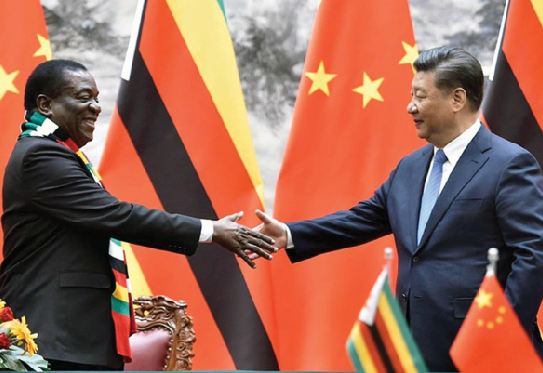More Chinese investors eye Zimbabwe
More Chinese investors are planning to invest in Zimbabwe’s manufacturing and service sectors, taking advantage of the country’s industrialisation drive, Chinese Ambassador to Zimbabwe Mr Guo Shaochun said yesterday at a special policy dialogue forum on China-Zimbabwe relations.
Ambassador Guo said his country is committed to furthering cooperation between the two countries, but does not believe in providing loans to its allies such as Zimbabwe, as that creates an unnecessary debt burden.
Instead China believes in win-win investment models.
“We are going to invite more Chinese investors to come into Zimbabwe, through BOT for instance, where Zimbabweans will take over after 15 years or so. It is not a true argument that Chinese investors are not interested in manufacturing. We have Sinosteel that has invested in Zimasco and now that company has reclaimed lost glory. So many companies are interested in investing in Zimbabwe and we need to invite more,” he said.
The appetite by foreign nations to invest in Zimbabwe was previously hampered by red-tape.
However, the Second Republic through President Mnangagwa’s “Zimbabwe is Open for Business policy” has seen the ease of doing business improving.
“China and Zimbabwe enjoy a time-honoured friendship. Our cooperation has made great progress in recent years. To support Zimbabwe’s Vision 2030, China is actively engaged in big infrastructure projects that support the development of the country and smaller ones that improve daily life for the people, such as building schools and hospitals. Last week, the residents in Mwenezi District of Masvingo cheered and danced as Chinese engineers worked on new boreholes for the community.
“Their happy faces are a great delight to us too. This is a wonderful example of President Xi Jinping’s vision for China-Africa relations, a China-Africa community of shared future that pursues win-win cooperation and delivers happiness for all of us,” said the Ambassador.
The Second Republic has reduced the period from starting a business from 32 days to 11 days. It now takes 150 days to start a construction permit down from 208 days. The property registration period has been cut down from 36 days to 14 days and because of these reforms, Zimbabwe is in Africa’s top five nations for doing business.
“We always support the industrialisation of Zimbabwe and (Chinese) companies that are operating in Zimbabwe always make good use of resources in the country. For instance Sunny Yi Feng (in Norton) is employing over 1 400 people and producing tiles for export that will earn the country foreign currency,” said Ambassador Guo.
“I have been here for one-and-a-half years and I have seen that enterprises want to enter the Chinese market through political channels.
“Recently, there was a Chinese Expo, which was attended by President Xi Jinping and only one Zimbabwean company exhibited there. Zimbabwean enterprises lost the opportunity to market their products,” he said.
During the discussion, Ambassador Guo also urged the media to be sensitive to the cultural differences and variations in work ethics, for instance on working hours and definitions of human rights.
Some Chinese firms could be accused of overworking workers, when in fact they are working around the clock to meet deadlines and all the while paying their employees the due overtime.
The seminar that was co-hosted by Mr Ibbo Mandaza saw scholars zeroing in on some of the development achievements of China that might assist Zimbabwe towards the requisite economic and social reforms necessary for growth and development.-herald.cl.zw








